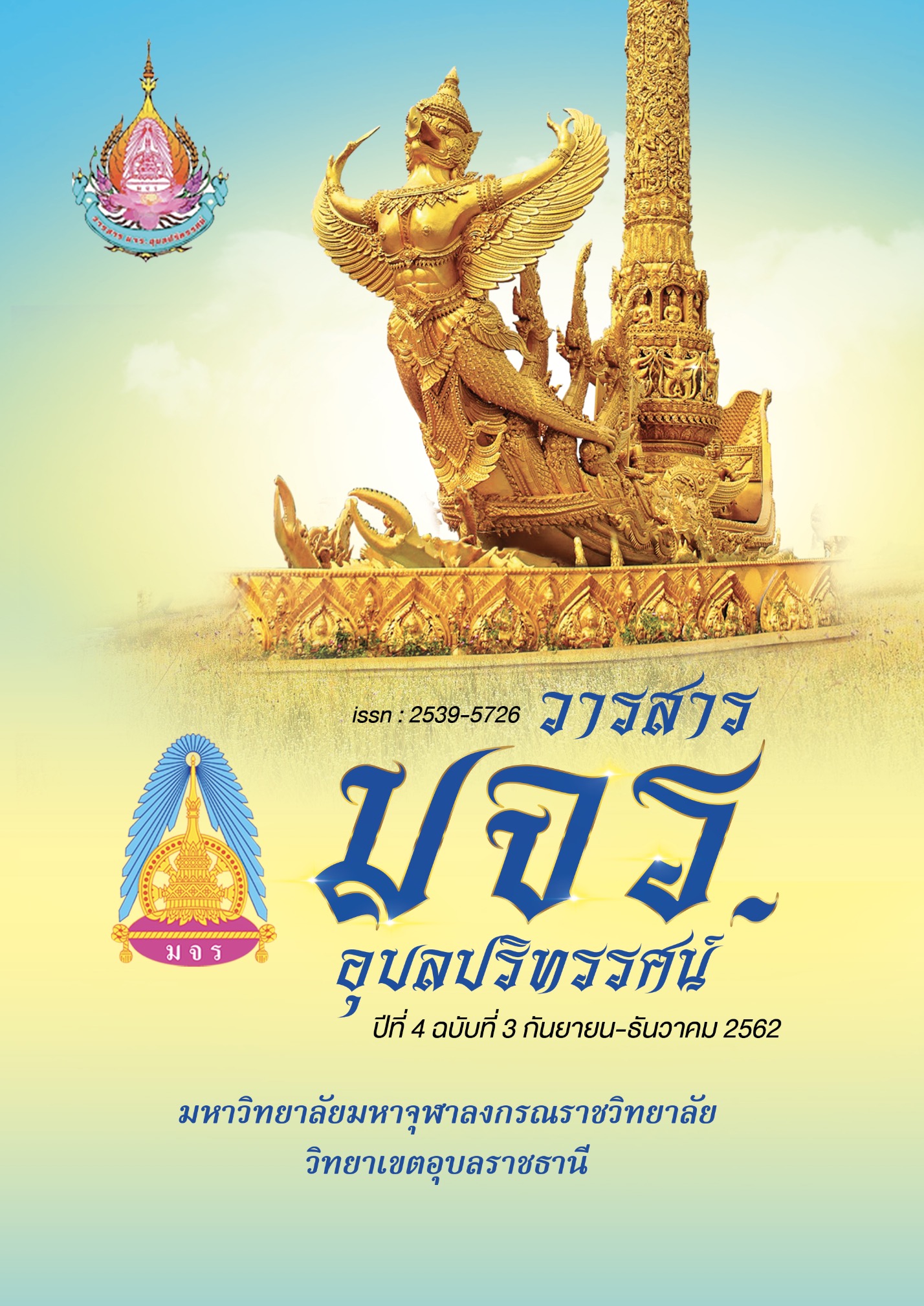Organic Farming Policy and Life Quality Development of Thai Farmers.
Main Article Content
Abstract
Thailand is an agricultural society. The majority of the population is engaged in farming as farmers such as paddy farming, gardening, crop farming and fishery. The agricultural products have been exported to many countries around the world including rice, vegetables, fruits and many other agricultural products that is considered a part of the income to help national growth and keep up with international communities that have been rapidly developed. The current government has set up organic farming policy for farmers to produce quality, standard and safe agricultural products for producers and with the acceptability of consumers. This also results the additional value of the products, increasing market demand and consumption of organic farm products both domestically and internationally. The policy, thus, encourages farmers to produce standardized quality products accepted by consumers and markets. It also minimizes the capital of investment by using organic fertilizer to substitute the chemical one that results a better quality of life of farmers, increasing income from farming, decreasing the burden of debt and being proud of farming career. Organic farming can be simultaneously driven through sufficiency economy philosophy, technology, innovation and other policies. Farmers need to be open minded for self-improvement in areas of knowhow, capability, techniques, innovation, technology and experiences of other successful organic farmers to simultaneously apply with organic farming theory for life quality development. Organic farmers need to be ready for learning and change in areas of knowledge, skill, behaviors according to the changing environment that will lead to success in a better living and quality of life.
Article Details
References
ตัวอย่าง. พิมพ์ครั้งที่ 3. นนทบุรี: โรงพิมพ์มหาวิทยาลัยสุโขทัยธรรมาธิราช.
ปกรณ์ ปรียากร. (2538). นโยบายสาธารณะและการวางแผน. กรุงเทพฯ: สถาบันบัณฑิต
พัฒนบริหารศาสตร์.
กระทรวงเกษตรและสหกรณ์. (2560). เกษตรอินทรีย์. [online].
https://www.moac.go.th/a4policy-alltype-391191791795.
กรีนเนท. (2560). หลักการเกษตรอินทรีย์. [online].
http://www.greennet.or.th/article/1006.
กรีนเนท. (2560). แนวทางเกษตรอินทรี. [online]. http://www.greennet.or.th/article/86.
suwatchai. (2560). การพัฒนาตนเอง พัฒนาคุณภาพชีวิต.
http://www.bp.or.th/webboard/index.php?topic=12950.0;wap2.BESTERLIFE • PUBLISHED.
การพัฒนาตนเอง. [online]. http://besterlife.com/พัฒนาคุณภาพชีวิต/.
ขวัญตา พระธาตุ/สคป.สข. (2560). การพัฒนาคุณภาพชีวิตในการทำงานอย่างไร ? ให้ทันกับ
สถานการณ์ที่เปลี่ยนแปลงในอนาคต. [online].
http://www.sk-ad.ago.go.th/index.php/2013-05-15-09-41-23/2-
uncategorised/34-2014-05-22-07-36-19?showall=&start=4.
อมรศักดิ์ กิจธนานันท์. (2551). สไลด์ประกอบการบรรยายวิชาแนวคิดและทฤษฎี
กระบวนการนโยบายสาธารณะ. เพชรบุรี: มหาวิทยาลัยราชภัฎเพชรบุรี.
พีรธร บุณยรัตพันธุ์. (2551). สไลด์ประกอบการบรรยายวิชานโยบายสาธารณะ.พิษณุโลก :
สาขาวิชารัฐศาสตร์.
McNichols. 1977 : 3 (อ้างถึงใน tassanee kumnurdsing. 2555). นโยบาย ความหมาย.
Ripley,RandallB. & Franklin, GraceA. (1982).BureaucracyandPolicyImplementation. Illinois: The Dorsey.


